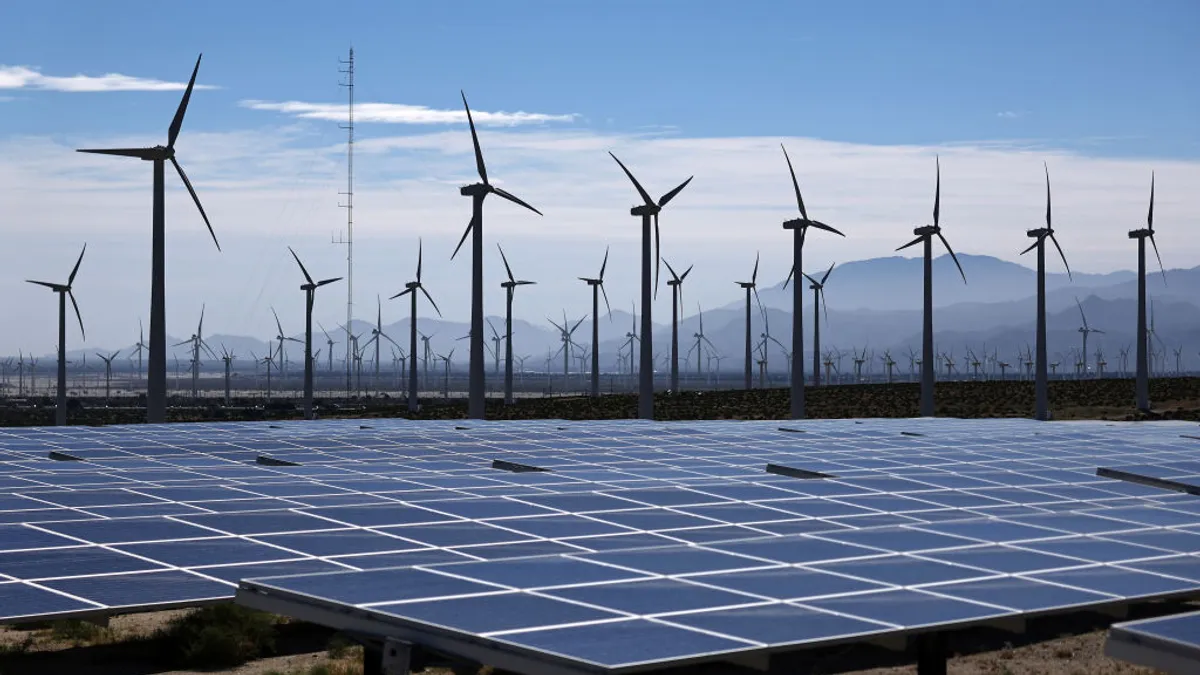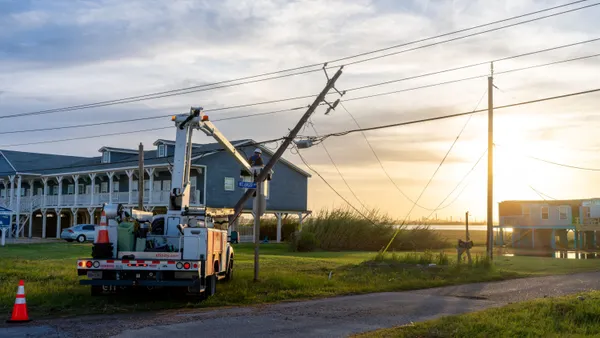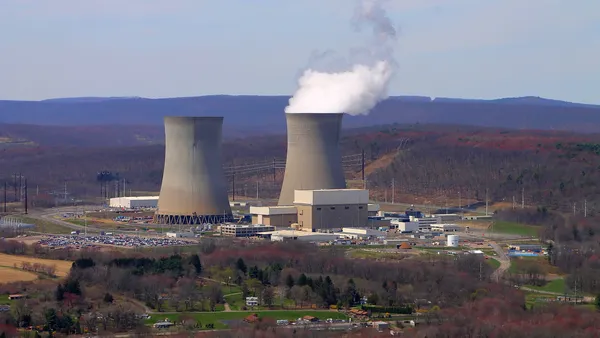The following is a contributed article by Chris Deri, a senior managing director at Teneo, a global CEO consulting and advisory firm, and Sasha Mackler, executive director of the Energy Project at the Bipartisan Policy Center, a Washington, D.C.-based think tank.
Despite an unending global pandemic, increased geopolitical tensions, and ongoing domestic political disorder, 2021 delivered encouraging progress to address climate change. In the U.S., the bipartisan infrastructure legislation unleashed massive new energy and climate programs. Globally, the United Nations climate conference in Glasgow solidified many new government commitments and public-private partnerships. Investors poured more than $120 billion into environmental, social and governance (ESG) funds, on a trajectory to reach $1 trillion by 2025. And now 600 of the largest 2,000 publicly traded global companies have announced net zero targets.
To move beyond aspirational speeches, in 2022 CEOs and their executive teams will make decisions that can either lay the ground for powerful climate legacies or seed strategic problems related to their company's long-term competitiveness, reputation and investor value creation. Net-zero strategies will not reside with just one executive or in a single corporate function. They will live — or die — across the entire enterprise.
Until recently, environmental actions by businesses were largely efforts to do no harm within their own footprint. But net zero commitments are intended to go far beyond a company's own operations. They comprise new promises to do good for broader society with multi-decade goals, based on technologies and market conditions that often don't yet exist.
Significant policy and regulatory variabilities loom over these commitments, creating profound business uncertainty. For example, we are still in a wait-and-see period regarding climate-related regulatory requirements and disclosures. Key frameworks on carbon markets are in flux. The U.S. government still searches for a federal strategy to reduce emissions, as climate-related trade issues flare across the world's largest economies, and standard rules for booming voluntary carbon markets remain in their infancy.
Nor is investor sentiment fully formed. Yes, BlackRock's Larry Fink declaring that ‘climate risk is investment risk' has sparked most asset managers to incorporate ESG criteria as part of their investment thesis. But being able to differentiate various decarbonization approaches, let alone connecting these strategies to value creation, remains a murky business in most sectors.
Adding to the complexity for CEOs and their executive teams, the primacy of shareholder interest must now make room for other stakeholder viewpoints and agendas. According to recent research fielded by Teneo — among financial and policy-focused influencers, as well as ESG-engaged consumers — there are points of alignment and disagreement on corporate net-zero commitments that are important to understand clearly. For example:
- All groups agree that achieving net-zero goals will require shared action and commitment by business, government, and consumers.
- By a significant margin, policy influencers are the most skeptical about both carbon offsets as an effective net-zero lever as well as more broadly doubtful about the U.S. ability to "lead" as compared to Europe in the energy transition for the upcoming decade.
- Financial elites appreciate that net-zero commitments positively contribute to a company's reputation and social license to operate, but they are the most skeptical about the connection between decarbonization, financial performance, and shareholder value creation.
However, in this coming year of getting real, companies and their executives who are serious about meeting net-zero goals cannot wait for all externalities to be clarified, nor can they expect to entirely please all their stakeholders.
As a starting point, the path to 'net zero' should begin by counting emissions properly. A current lack of universal emission accounting standards is spawning many products and services of dubious quality, which erase emissions on corporate balance sheets while they still end up in our atmosphere.
Carbon offsets will be an important lever used by many companies as part of their overall net-zero journey. But offsets offer both promise and risk. The classic offset combines a reduction taken by one entity being claimed by another, typically through the purchase of a carbon credit. The offset market was worth roughly $300 million in 2019 and is expected to scale to $180 billion by the end of this decade, largely driven by emerging demand created by voluntary corporate commitments. When pursued with transparency and integrity, offsets from emissions displacement and carbon removal can provide strong and scalable carbon benefits. However, significant integrity risks remain in the current environment.
Tackling just the complexities associated with carbon offsets will provide larger lessons to various executive leaders, all of whom must develop their own ‘net-zero strategies'. These include:
- Capture decarbonization economic opportunities and communicate about them… carefully: Investors increasingly understand carbon risks, but explaining potential accretive upsides and new addressable markets is more complex. Particularly for industry incumbents who may be contending with younger, net-zero pure-play competitors, when explaining new opportunities, it is critical to provide clarity about time horizons and transitions from legacy to new product portfolios.
- Protect your own regulatory self-interest while simultaneously advocating alongside government on shared interests: Bringing together peer businesses to work with the public sector on shared goals such as standardized data collection and accounting will help clear the pathway for all players. This same approach should be used for the collaborative development of long-term regulations to create certainty around the implementation of net-zero goals. A new paradigm of partnership between business, government and civil society is required to effect change at scale.
- Attract and Retain Employees with Purposeful Transparency: Carbon credits that truly displace and remove emissions will protect our planet's natural resources and improve living standards. Differentiated company storytelling — backed-up with data — about quality carbon offsets as well as the overall ESG journey, can be as important as compensation and job duties in the effort to inspire and attract high value employees who have growing expectations of their employers' positive societal impact.
2021 was a year of unprecedented climate commitments. 2022 is poised to be the year that unlocks action. The field is wide open. Driving the net-zero movement forward offers an opportunity to shape the future in the best interest of long-term goals across all parts of your company. In other words, define 'net zero' for yourself, before others define it for you.












